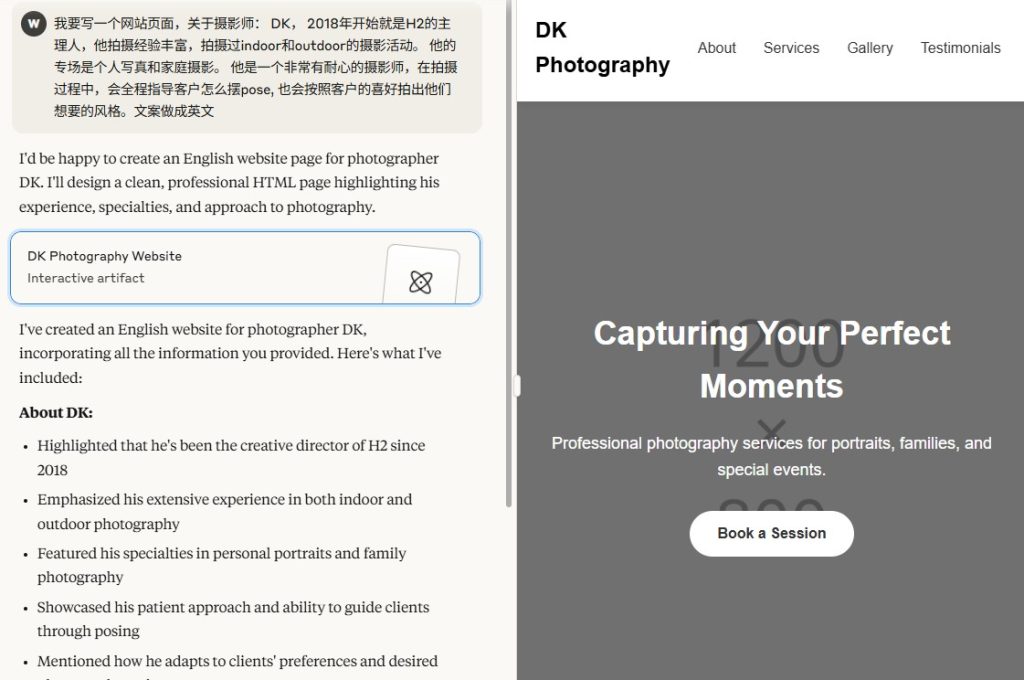In today’s digitally connected world, social media has become an indispensable tool for businesses to reach and engage with their target audience. Singapore, with its tech-savvy population and highly competitive business environment, is no exception. Social media marketing in Singapore is not just about posting regular updates; it’s about staying ahead of the curve, adopting the latest trends, and employing effective tactics to capture the attention of a diverse and discerning audience. In this blog, we’ll explore the current trends and tactics in social media marketing in Singapore.
Trends in Social Media Marketing in Singapore
1. Video Dominance
Video content has become a dominant force in social media marketing, and Singapore is no exception to this trend. Various platforms such as YouTube, TikTok, Instagram, and Facebook offer businesses an opportunity to engage their audiences through compelling video content. Here’s a closer look at this trend:
- Short-Form Videos: Short videos, often under a minute in length, are gaining immense popularity. Platforms like TikTok and Instagram Reels have harnessed the appeal of short and engaging content. Businesses are creating attention-grabbing videos that convey their message succinctly.
- Live Streams: Live streaming is another aspect of video marketing that’s thriving. Live sessions provide an interactive and real-time connection with the audience. Singaporean businesses, from retailers to influencers, use live streaming to showcase products, answer questions, and host events.
- Video Stories: Platforms like Instagram and Facebook allow users to post “Stories,” which are short-lived, engaging video clips. Businesses are using Stories to provide quick updates, share behind-the-scenes content, and keep their audience engaged.
- YouTube Popularity: Singaporeans spend an average of 1.5 hours daily on YouTube. This platform’s reach is significant, making it a prime choice for businesses looking to engage with a broad audience.
The key takeaway here is that video marketing is about creating content that resonates with Singapore’s digitally connected population. Short, engaging videos and live streams allow businesses to capture and maintain the attention of their audience.
2. Influencer Marketing
Influencer marketing has emerged as a powerful trend and is becoming an integral part of social media marketing in Singapore. Collaborating with influencers – individuals who have established themselves as authorities in their respective niches – is a strategy that more and more brands are adopting. Here’s why influencer marketing works:
- Local and Micro-Influencers: Singapore boasts a thriving community of local influencers and micro-influencers who have cultivated a dedicated following. Brands can leverage these influencers to connect with their target audience authentically. The relatability and authenticity of micro-influencers can often lead to more genuine engagements.
- Authentic Connections: Influencer partnerships can create authentic connections with an audience. When an influencer genuinely aligns with a brand’s values and products, their endorsements feel more trustworthy, leading to higher conversions.
- Diverse Niches: Singaporean influencers cover a wide range of niches, from beauty and fashion to food and technology. This diversity allows businesses to find influencers that match their industry or niche, ensuring a highly targeted approach.
3. E-commerce Integration
Singaporean businesses are actively integrating e-commerce with their social media strategies. Social media platforms have evolved into powerful sales channels, making it easier for consumers to shop directly from these platforms. Here’s what e-commerce integration looks like:
- Facebook Shops: Facebook has introduced “Shops,” a feature that enables businesses to set up online stores directly on their Facebook Page. This allows consumers to browse and purchase products without leaving the platform.
- Instagram Shopping: Instagram also offers a shopping feature where businesses can tag products in their posts and Stories. Users can tap on these tags to view product details and make purchases.
- TikTok Shop: TikTok has joined the e-commerce bandwagon, allowing brands to link their product catalogues for seamless shopping on the platform.
This integration of e-commerce on social media simplifies the buying process, making it more convenient for consumers and boosting sales for businesses.
4. User-Generated Content
User-generated content (UGC) is a trend that’s making waves in the landscape of social media marketing in Singapore. Encouraging customers to create content about your brand can be a powerful strategy. Here’s how it works:
- Trustworthiness: Singaporean consumers trust content generated by their peers more than content created by brands. This trust can significantly impact their purchasing decisions.
- Contests and Challenges: Brands often run contests, challenges, or hashtag campaigns to encourage users to create UGC. These initiatives not only foster engagement but also provide a stream of user-generated content that can be repurposed for marketing purposes.
- Social Proof: UGC serves as social proof, showcasing how satisfied customers are with a product or service. Sharing such content can build trust and credibility.
UGC is a cost-effective strategy that leverages the power of your satisfied customers to promote your brand authentically.
5. Chatbots and AI
Incorporating chatbots and artificial intelligence (AI) into social media strategies is another trend that’s gaining traction in Singapore. Here’s how it works:
- Immediate Responses: Chatbots offer immediate responses to customer inquiries. This quick and efficient service can improve customer satisfaction and engagement.
- Routine Task Handling: AI-powered chatbots can handle routine tasks, such as answering frequently asked questions, tracking orders, or providing product information. This frees up human resources for more complex tasks.
- Personalisation: AI can analyse user data and behaviour to deliver personalised recommendations and responses, creating a more tailored and engaging user experience.
Chatbots and AI not only enhance customer service but also streamline social media interactions, making them more efficient and effective.
Tactics for Effective Social Media Marketing in Singapore
Localisation: Singapore is a diverse and multicultural society. To connect with the local audience, it’s crucial to understand their cultural nuances. Use local languages, celebrate local festivals, and be aware of local customs.
Data-Driven Insights: Utilize analytics and data to understand your audience better. Tools like Facebook Insights, Instagram Insights, and Google Analytics provide valuable information on user behaviour and preferences. This data can help you refine your social media strategies.
Paid Advertising: While organic reach is essential, paid advertising on platforms like Facebook and Instagram can significantly enhance your visibility. These platforms offer precise targeting options, ensuring your ads reach the right audience.
Content Calendar: Plan your social media content in advance. A content calendar helps maintain consistency and ensures that your posts align with your overall marketing goals.
Engage and Interact: Social media is not a one-way street. Engage with your audience through comments, messages, and interactions. Respond promptly to inquiries and address customer concerns. Building relationships with your followers is crucial.
Mobile Optimization: Given the high mobile usage in Singapore, it’s essential to ensure your content is mobile-friendly. Your website and social media posts should be responsive and load quickly on mobile devices.
Cross-Platform Promotion: Promote your social media channels on your website, email signature, and other marketing materials. Encourage cross-platform engagement to expand your reach.
A/B Testing: Continuously test different content types, posting times, and ad variations to determine what works best for your brand. A/B testing allows you to refine your strategy based on real data.
Conclusion
Social media marketing in Singapore is a dynamic and ever-evolving field. To stay ahead in this highly competitive market, businesses must adapt to the latest trends and employ effective tactics. From video content to influencer partnerships, there are numerous opportunities to connect with the tech-savvy audience in the Lion City. By localising your approach, leveraging data-driven insights, and engaging with your audience, you can create a strong social media presence that drives brand awareness and business growth in Singapore.
For businesses looking to maximise the benefits of these trends, enlisting the expertise of a digital marketing company can be a strategic move. These agencies are well-versed in the ever-changing world of social media and can provide valuable insights, strategies, and execution capabilities. They can help craft a tailored approach that aligns with your brand’s goals and resonates with the local audience, ensuring your social media marketing efforts are both effective and efficient.
By partnering with a digital marketing company in Singapore, businesses can leverage their experience and in-depth knowledge of the local market, thereby enhancing their chances of success in the vibrant and competitive world of social media marketing.








